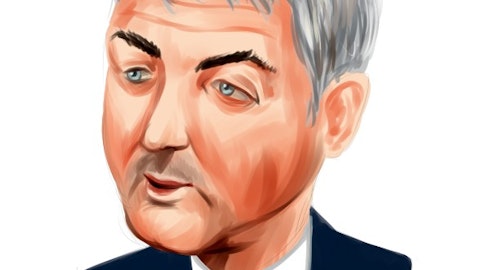The market has reacted to the imminent sequestration deadline with a lackadaisical shrug. Although indexes have been hovering around five-year highs, you have to wonder why so few investors seem concerned that terrible gusts of economic headwinds could wipe out many companies’ profitability.
The market is indeed bipolar, but the supposedly smartest professionals are reluctant to make the diagnosis and get clinical about the reality.

Scorched earth and shrinking prospects
Along with still-high levels of unemployment, continued mass layoffs, rising gas prices, payroll tax hikes, and other negative factors, sequestration could send serious ripple effects throughout the public and private sectors. This isn’t simply limited to government agencies and services. Take defense contractors, many of which are publicly traded. The federal government pays out $500 billion every year to such firms, and contractors represent 7.5 million workers.
Regardless of where the money comes from, fewer jobs and slashed consumer incomes can devastate economies. When individuals stop spending, it hurts everyone else’s income and spending power, affecting businesses from mom-and-pop restaurants to maid brigades to gardeners to giant corporations like Wal-Mart Stores, Inc. (NYSE:WMT).
Although paring U.S. debt, reducing government spending, and getting America’s fiscal house in order are all rational goals, a scorched-earth policy is hardly a reasonable path to get there. As far as investors go, it’s time to look beyond today, this month, or next quarter and realize that these tactics threaten many companies’ sales and profits at a time when the economy is still very fragile.
La-la-la, we’re not listening
Traders don’t seem too troubled today; the rest of us should wonder what they’ve been smoking.
Earlier this week, Federal Reserve Chairman Ben Bernanke defended the Fed’s continued unprecedented levels of stimulus given economic negatives like still-high unemployment. In addition, he admonished Congress for its poor handling of the sequestration mess and its potential to hurt GDP.
Interestingly, though, Bernanke also said, “I see no evidence of a stock bubble” despite the fact that the market’s hovering near five-year highs. And this rally has come way before much meaningful recovery as well as during continued economic drags.
Hit rewind, and recall that Fed Chairman Alan Greenspan failed to detect another big bubble: housing. Bernanke didn’t believe there was one, either, right before he was nominated as the next chairman. We’re still digging out of that debacle. His failure to detect came at a time when almost everyone was convinced the artificially pumped-up economy was actually healthy, too.
Bernanke indicated that strong corporate earnings explain the rally mode. That’s not exactly correct. Many of us know that profits are being juiced by many companies through cost-cutting, not actual sales growth.
The strong survive
The overall picture isn’t pretty, particularly when you throw sequestration into the already nasty mix. We shouldn’t give up on stocks, but we should admit that some are heading for a fall and focus our portfolios on the strongest companies with the brightest futures, strong balance sheets, and great leadership.
That also means avoiding value traps at all costs. For example, tidings from J.C. Penney Company, Inc. (NYSE:JCP) and Sears Holdings Corporation (NASDAQ:SHLD) show these two companies are like two drunks tethered together jumping out of a plane. This pair is unlikely to navigate a far more challenging macro climate.




